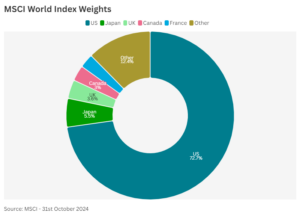
We have previously reported on the alarming rise in financial fraud, which accounts for 4 in every 10 offences carried out against individuals in the UK. Sadly, more people are falling victim to ever more sophisticated methods used by fraudsters, who are using new technology to their advantage.
A recent report undertaken by Barclays indicates that one in five consumers have fallen victim to a scam over the last year, and one in three people know of someone who has been scammed. Further evidence of the rise in fraud is that the Financial Ombudsman Service reported that they received over 8,700 complaints relating to fraud in the first quarter of 2024, an increase of 42% on the same period in 2023, and double the number of complaints seen in the first quarter of 2022.
These grim reports are a timely reminder of the need to remain vigilant against fraud. Victims may not only face financial consequences – becoming a victim of financial fraud can also lead to considerable emotional harm.
Financial fraud can take many forms, with the most common being cases where consumers are tricked into handing over bank details to fraudsters, after being alerted that they are due to receive a fictitious refund from an organisation or business, or owe a fine or have tax to pay. Other frauds and scams, including those relating to investments and pensions, have also become more commonplace over recent years.
What can you do to protect yourself?
There are some common-sense steps you can take to help defend yourself against financial scammers. Firstly, always remain vigilant if you receive any unsolicited communication from your bank, H M Revenue and Customs or any other company you deal with.
You should also be cautious when receiving an unexpected phone call. If you’ve been called by someone claiming to be from your bank, end the call and then phone the official bank number from a different phone. This is important, as scammers can keep the line open if you call back from the same phone. You should never disclose passwords, PIN numbers or bank details over the telephone.
Text messages or emails received from a bank or other service provider should be treated with suspicion, especially if the text message asks you to click on an email link. This could direct you to the scammer’s website, where your personal details can be collected. If in doubt, always log on to a legitimate website directly, rather than clicking a link in an email.
It is not only communications from companies and organisations that need to be treated with care. An increasingly common scam is where a scammer contacts an individual via text message, pretending to be the child of the victim, asking for funds to be sent to the child for a fictitious reason.
You should always be wary of cold callers trying to sell you an investment product or service. Don’t allow yourself to feel rushed into making a financial decision, and always take time to think about whether to take up an offer. This will give you time to seek independent advice before reaching a decision.
Unrealistic investment returns
Scam cases involving investments and pensions continue to rise, and fraudsters are using more convincing ways to make offers look and sound more plausible to unsuspecting consumers. A good rule of thumb is that you should always reject any unsolicited contact offering you the opportunity to make an investment. The contact could come via a telephone call (often from organised set-ups known as “boiler rooms”) or an email, and may offer the opportunity to purchase an investment that can provide unrealistic returns that sound too good to be true. The fraudulent offer may also try and hurry you into making an urgent decision, on the pretext that failure to act quickly would mean missing out.
Protect your pension
Pension scams usually take the form of cold calls, offering investment opportunities in high-risk investments, such as overseas property, forestry or other similar unregulated investments. Many of these offers will suggest that the individual needs to transfer their pension to the scammer to access the unregulated investments, and this is often accompanied by high pressure selling tactics.
Another potential scam is a call offering the ability for an individual to access or unlock their pension before the age of 55. This can only legitimately be undertaken in a very limited set of circumstances and treat anyone contacting you to offer such services as being highly suspicious.
Know who you are dealing with
Consumers can help protect themselves from investment fraud by checking who they are dealing with. The Financial Conduct Authority (FCA) Financial Services Register lists details of firms and individuals who are authorised to provide investment and pension advice.
The FCA also provide a list of “cloned” firms on their website, where you can check whether a fake firm has been previously reported for setting up a fraudulent operation that uses the name, address or other details of a legitimate firm.
Don’t add to the statistics
Given the worrying increase in financial fraud, everyone needs to be vigilant to the risk of falling victim to a scam or fraud. Consumers should always treat any unsolicited contact from a financial services provider, a utility company or other organisation with a degree of caution. Trust your instincts, and if something feels suspicious, then report it to Action Fraud, the UK’s national reporting centre for fraud and cybercrime.















